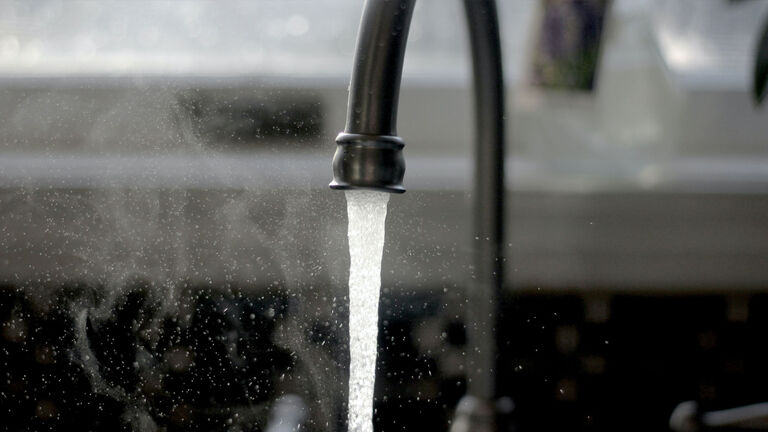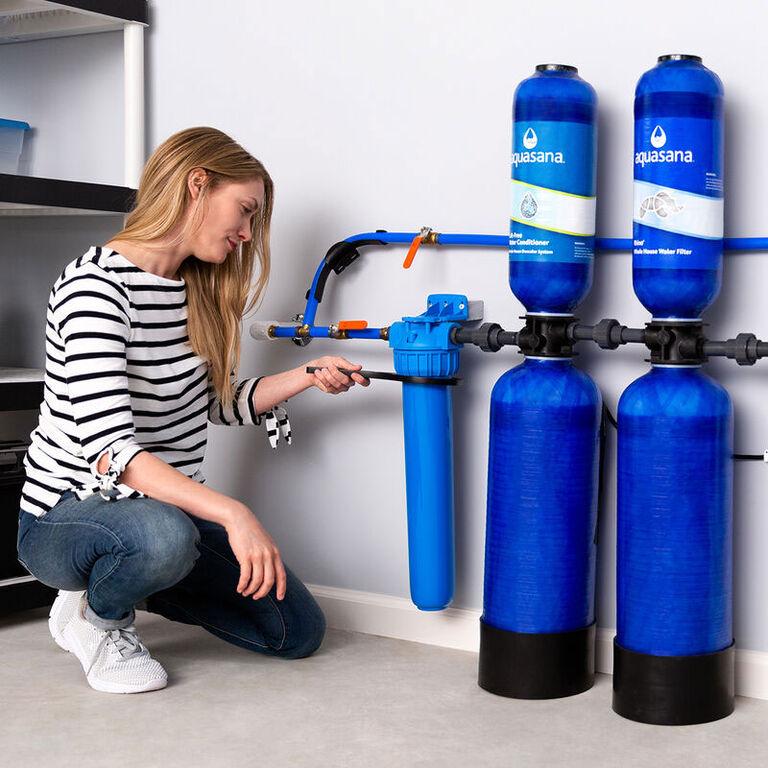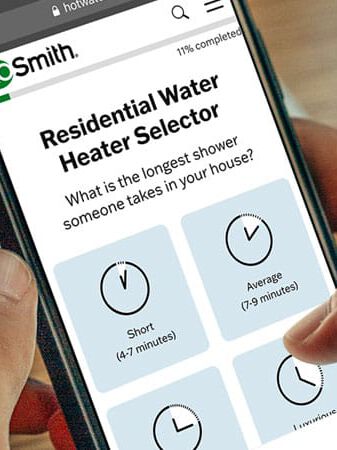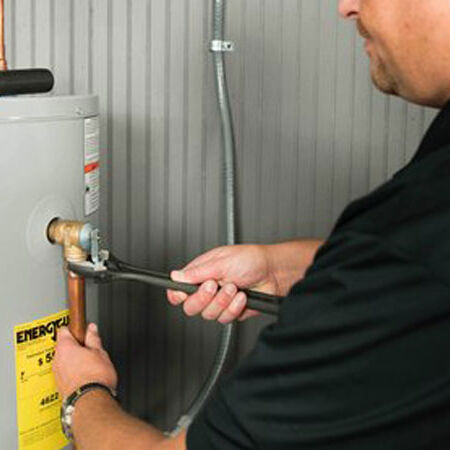.jpg?cx=1225&cy=0&cw=468&ch=625)
Water Quality Impact
As a leader in water technology, A. O. Smith offers solutions beyond water heating that take additional factors into account such as water quality and groundwater temperature. This includes a line of water softening and filtration accessories to further optimize your water heater's performance.
What to consider when purchasing a water heater

Your home's water quality can have a significant impact on your water heater. Understanding your home's water quality is the first step in determining the best water treatment and heating solution for your home.
Identifying Your Water Quality

Researching the water within your state, area code, and neighborhood using online government resources is the first step in determining your water quality. Each water supplier releases an annual Consumer Confidence Report (CCR) with details about their water quality. These can be found through the EPA or directly from your water supplier. After you have checked your region's water quality or if you use water from a well, you can conduct a test of your home's water quality (pH levels, lead, bacteria, etc.) or have your local plumbing contractor do it for you.
Environmental and Location Factors

Water quality is not the only factor in determining what water heating solution is best for your home. Where you live and the local groundwater temperature is important to consider. You may need a larger or more powerful water heater in a cold climate than in a hot climate to get the same amount of hot water.
The Effects of Water Hardness and Scale

What is water hardness?
Hard water is measured by the amount of dissolved minerals within a water supply, usually dissolved calcium and magnesium. The more minerals present in the water, the harder it is and harder water leads to increased scale buildup. If you have very hard water, water softening systems can be used to prevent scale buildup.
How does this impact me?
Hard water is in more than 85% of American homes, and hard water scale is a leading cause of failure for tankless water heaters. The harder the water the more likely your faucets, water heaters, and other water delivery products will produce scale buildup. Scale buildup may reduce the efficiency of your water heater, which impacts its performance and costs, and may cause overheating and damage to the point where the water heater could begin to leak water.
How can I help protect against scale buildup?
For tankless water heaters, the Product Preservers® Anti-Scale Filter System is a great option for mitigating the impact of scale buildup. It promotes formation of inactive scale crystals, which flow through the water heater without sticking to the heat exchanger. You'll only have to change the filter every two years.
For tank water heaters, sacrificial anodes in the water heater can create an aluminum hydroxide gel that decreases the efficiency of the heater in geographical areas with high water hardness. With the Product Preservers™ Powered Anode System, you can extend the life of your water heater. The system quickly adjusts to your water type to deliver better protection for years to come.
The Importance of Water Filtration

Depending on the location of your home and the TDS (Total Dissolved Solids) rating of your water, water treatment may range from a luxury to a necessity. Water filtering and softening can assist in providing clean water throughout your home and result in healthier living. Contact your local plumbing contractor to determine whether or not you need water treatment within your home. If you decide to move forward with installing a water filter, the next step is to determine whether you should purchase a whole home filter or a drinking water filter. Whole home filters are designed to filter all of the water used in your home, while drinking water filters are meant to be installed at a specific faucet and only filter the water there.

Not sure which product is right for you?
Take our water heater selector quiz to find the correct water heater for your home.

Find A Local Water Heater Pro
A. O. Smith water heaters are professionally installed by local independent contractors.
Interested in Learning More?
Why A. O. Smith?

A. O. Smith is a leading manufacturer of both residential and commercial water heating technologies, including the #1 most specified commercial water heater.

For more than 145 years, we’ve developed state-of-the art products that push new boundaries and improve the lives of our customers.

We combine cutting-edge technology with committed people who take pride in providing the very best support for our customers.

Our products are put through rigorous quality and endurance testing so now matter where hot water is needed, A. O. Smith can provide a solution you can count on.



